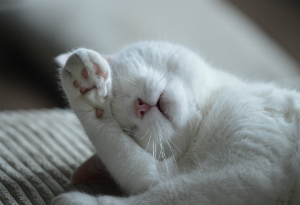How to get to sleep: dos and don’ts
- Emma Finamore
- Last updated 30 Nov 2015
Make sure you're at the top of your game with a good night's sleep.

Whether you’re studying for exams, have an important apprenticeship interview in the morning, or are settling into the swing of a new job with early starts, a good night’s sleep is one of the best ways to ensure you’re at the top of your game.
Sleep experts at the University of Surrey Sleep Research Centre have come up with a list of dos and don’ts to help you slumber.
Do
- Try to go to bed and get up at the same time each day. Your body clock naturally tells you when to sleep - don’t ignore it. Going to bed too early can disturb sleep and going to bed too late may not provide enough sleep.
- Spend time outdoors. Light regulates secretion of the sleep-promoting hormone melatonin. Natural light in the morning can help to synchronise the body clock.
- Get regular exercise each day, but not just before bed. Good exercise can improve sleep.
- Make your bedroom restful. Maintain a comfortable temperature and keep noise down with thick curtains or earplugs. Don’t expose yourself to too much light prior to bed - it can suppress the beneficial effects of melatonin.
- Only use the bedroom for sleep and relaxation – don’t watch TV in bed or work on the computer.
Don't
- Engage in stimulating activity just before bed – exercise, playing games, watching TV can stimulate the brain and make it harder to drop off.
- Drink caffeine or alcohol before bed – caffeine interferes with pathways in the brain that promote sleep. Alcohol can help initiate sleep but it also fragments sleep, causes earlier wakening, more frequent bathroom trips, and can induce or worsen snoring.
- Smoke before bed – nicotine is a stimulant.
- Go to bed hungry – a light snack or milky drink can help but it is important not to eat too much before you go to sleep.
- Nap in the evening – you may find a short daytime nap useful, but napping later in the day will reduce your sleep need and make it harder to nod off at night.
- Worry about your sleep – understand your sleep need (which includes naps and dozing) and don’t set unrealistic expectations
News
- Do apprentices get enough support?
- School Leaver Awards 2018: Spotlight on Moore Stephens
- The top 10 challenges facing young people today
- International Women’s Day: STEM careers & apprenticeships
- The best degrees for getting a job after uni
- Women in Engineering Day: the advantages & disadvantages of being a female engineer
- Oxbridge applications: interview with an Oxbridge reject
- How can I work abroad?
- Heat wave: Britain's best-paying outdoor jobs revealed
- Five things you should know before choosing A-levels